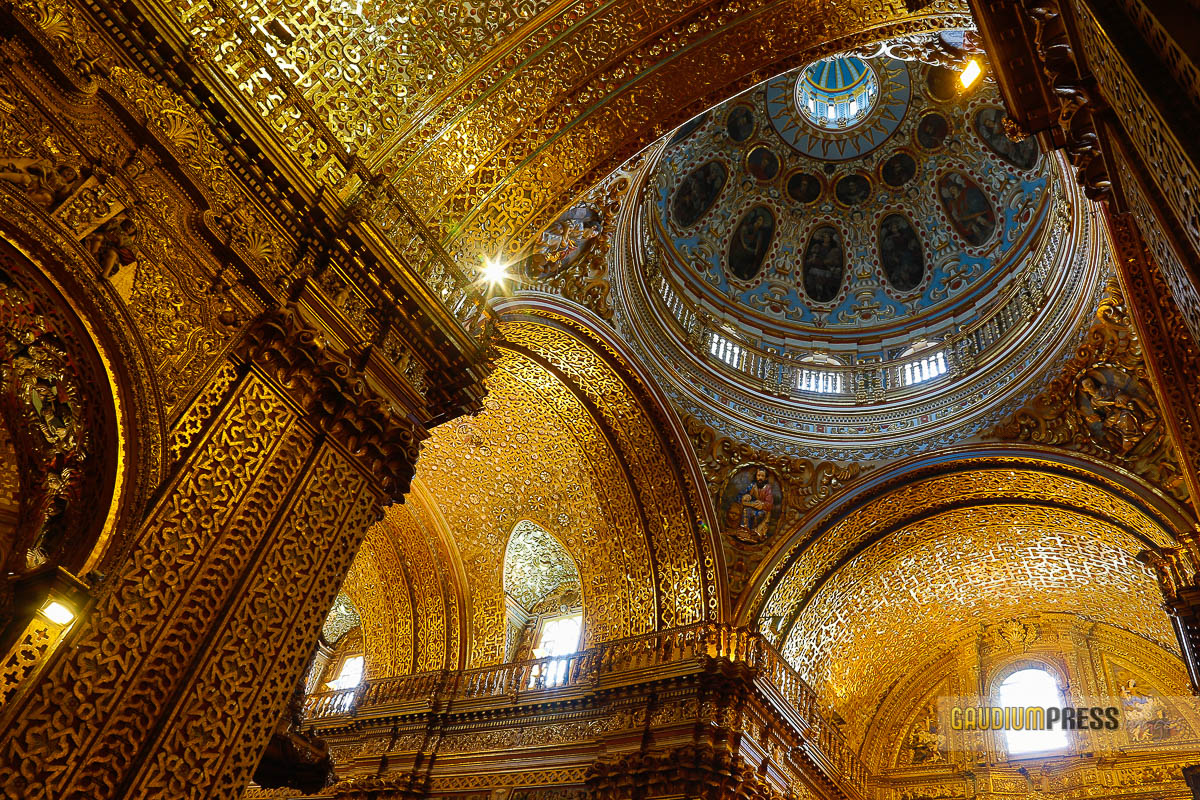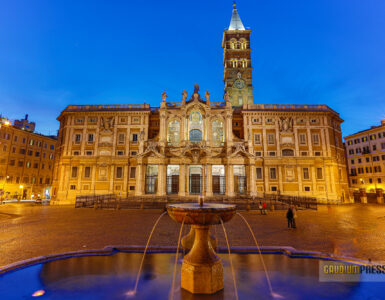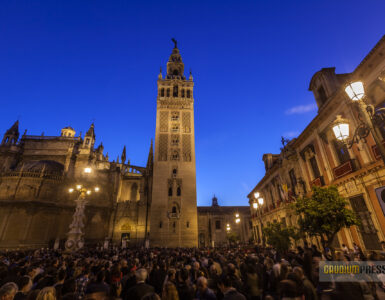The Jesuits left a deep mark in Quito, Ecuador; indeed, the Church of the Company of Jesus, or La Compañía, (as the locals know it) will dazzle visitors and leave them completely dumbfounded.

The architectural setting, following the Spanish Colonial baroque style, is not only flawless: it is completely covered by 16th Century Spanish gold. The temple is considered by many specialists the most important baroque work in Latin America. Started in 1650, it took 160 years to be completed.
Gold, gold

The Compañía Church is, in fact, one of the most visited Churches in Quito. The reason? As it was noted, square feet of the naves, ceilings and walls are covered in Gold. Figure this out: Columns, naves and ceilings are gold left with 23 karat gold, using thousands of thin leaves that were painstakingly applied to plaster and wood, making the building one of the richest and most dazzling temples found in all Americas. Our crew of Gaudiumpress photographers spent not less than 6 hours immersed in this authentic jewel, hidden in the heart of South America.

Floorplan and Naves
The setting follows the classic Jesuit architectural plan. The floorplan has the shape of a Cross. Three consecutive naves dominate the transept as the main nave soars at 23 m high (yes, almost 70 feet).
The blueprints have been attributed to Domenico Zampieri, the very same designer for the Chiesa di Sant’Ignazio di Loyola in Rome

The blueprints have been attributed to Domenico Zampieri, the very same designer for the Chiesa di Sant’Ignazio di Loyola in Rome
The main retable belongs to Bernardo de Legarda, a local artist renowned for his skill and taste.

On the back, visitors can see two massive paintings depicting “The Last Judgement” and “Hell,” by Hernando de la Cruz, in 1650.
La Compañía is one of the most significant works of Spanish Baroque architecture in South America.

Fireworks of gilded architecture
The beautiful building is a combination of Mudejar, Baroque, Neoclassical and Churrigueresque styles (the latter stands for Ultra-baroque, in a singular 17th Century Spanish term).

The Church forms the ideal cadre to contain the relics of St. Mariana de Jesus Paredes (1618-1645), the first Equatorian Saint. Her body is kept in one of the Chapels.

The Historical centre in the Capital of Ecuador was declared World Patrimony by Unesco in 1978. Damaged by the 1987 earthquake, the Church underwent an extensive restoration period, only concluded by 2005. According to tourist guides and visitors, La Compañía is the most beautiful Church in the Country.





















Add comment